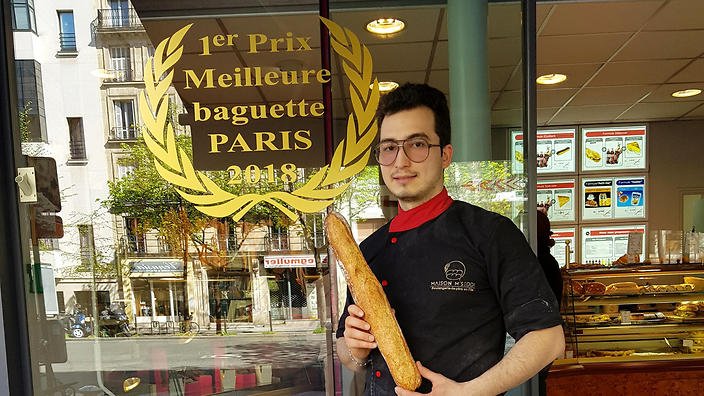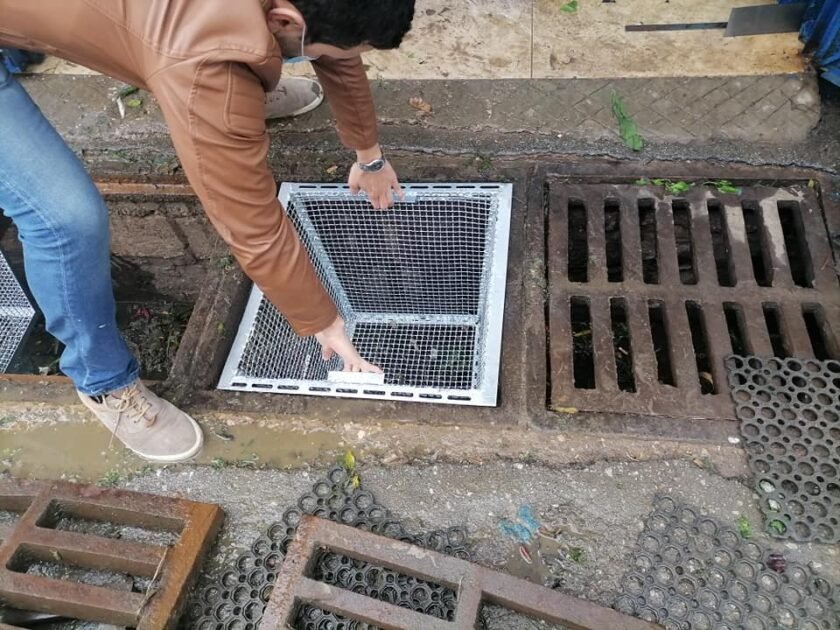Second-generation baker, Mahmoud M’seddi, will now supply the French president with bread for an entire year.
The baguette is one of the great treasures of French culinary heritage, emblematic of pride in tradition and craftsmanship, and important enough (in the eye of the French people and their president Emmanuel Macron) to be put forward to UNESCO as a heritage-listed food item.
If you’re inclined to try your hand at making one of these crusty, pillowy sticks from scratch, know that there’s a decree in place codifying the difference between a French baguette and a regular old breadstick. It’s been around since 1933, so it’s safe to say the rules of the art are both long-standing and binding – and not everyone is equipped to embark on the journey of the boulanger(French bread baker).
“My father was a baker in Paris for 30 years,” M’seddi tells SBS. “I was born in the bakery, and I’ve loved everything about the bakery since I was small – the pastries, the bread, the smells.”
As well as significant bragging rights, M’Seddi has won 4000 euros, an amount to go towards supplying the French presidential palace, The Élysée, with his bread for an entire year.
M’Seddi’s eponymous 14th arrondissement bakery toppled last year’s winner Sami Bouttour from Brun Bakery, himself another son of a Tunisian immigrant family. First and second-generation immigrants taking out what has been historically viewed as a very French award is becoming something of a trend – case in point: two-time winner Djibril Bodian from Senegal.

France is home to the largest Muslim and Jewish populations in Europe, and Paris serves as the country’s multicultural heart. Nothing tells this story quite like the city’s dizzying array of cuisines on offer. Boulangeries run by Tunisian or Moroccan immigrants, ever-busy street market stalls pumping out falafel roll after falafel roll, fruit and vegetable stores run by West African women in the 18th arrondissement – all signs of a modern, culturally diverse metropolis.
And yet, his cultural heritage and the multiculturalism of his city generally aren’t things that are on M’seddi’s mind as he’s baking, even as the winner of the city’s most prestigious award for French bread.

“People like to remind me of it, yeah, sure,” he’s told NY Times. “Me, I don’t make these distinctions. I couldn’t care less about it. I grew up here. I studied here. I pay my taxes here. It’s true that Tunisia called me after I won. They’re proud. But the Parisians are proud, too.”
For M’seddi, baking is about working hard and being the best. “The French eat a lot of bread,” he tells SBS. “That’s why it’s so important to be good. There is a basic recipe for baguettes that most bakers add to or change in some way, but mine is the one that made the difference.” He takes his work seriously, often working long hours in the bakery to get his dough exactly right.

And the hard work has paid off: M’seddi’s baguette was chosen as the best of 138 baguettes baked for the Grand Prize, the judging of which took place earlier this year in Paris. On the judging panel sat Guillaume Gomez, head chef at Élysée Palace, Franck Thomasse, president of the Boulangers du Grand Paris (an association of bakers in Paris), and Sami Bouattour of 2017 Grand Prize fame. All baguettes had to be regulation size – up to 65 cm long and coming in between 250 and 300 grams.
Beyond those specific requirements, not much is known about M’seddi’s baguettes – he insists on keeping the precise method a secret. In any case, no one can argue with a Grand Prize award. Now, how do we arrange an Australian shipment?
TunisianMonitorOnline (SBS)




